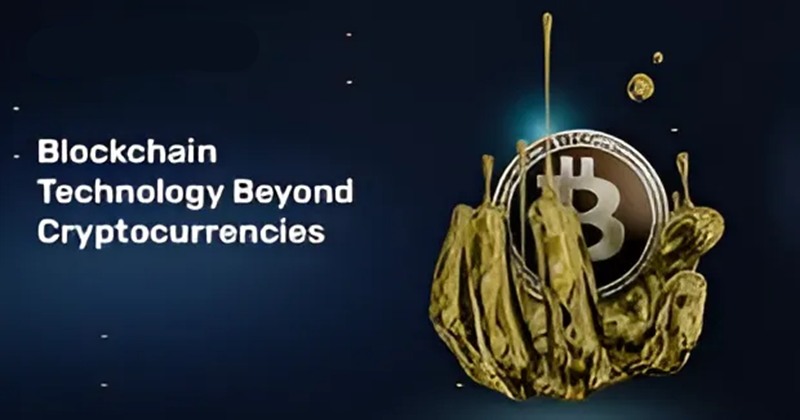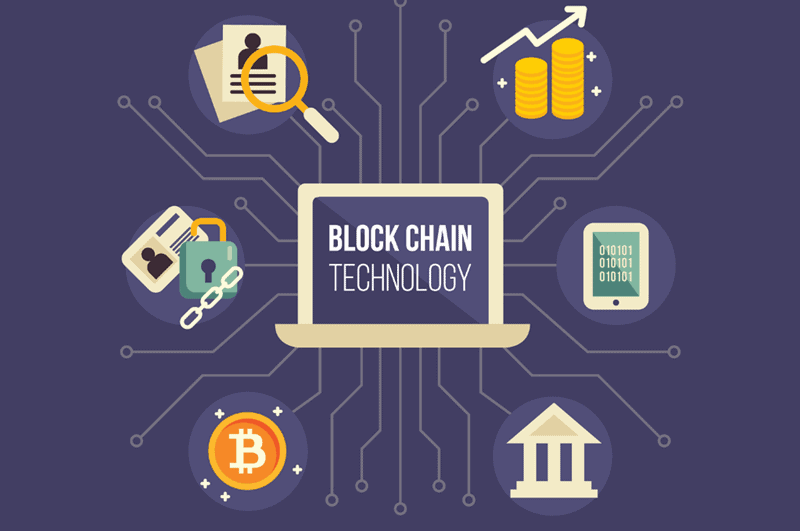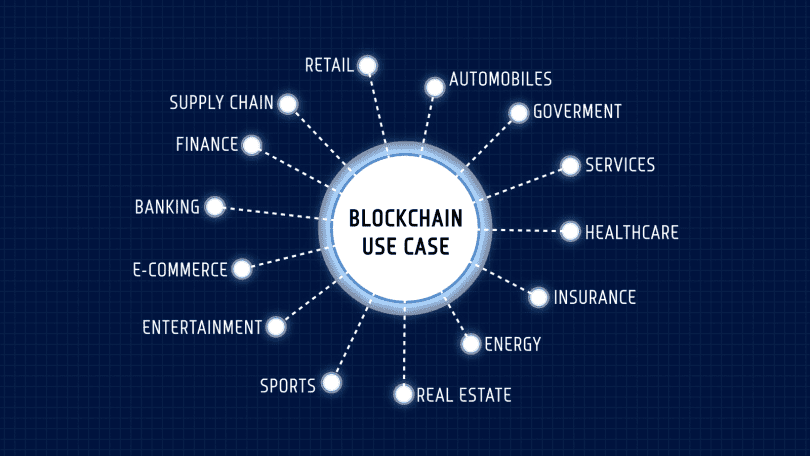Think blockchain is just for Bitcoin? Think again. The real magic lies in Blockchain applications beyond cryptocurrency. From tracking a package to getting your medical records, this tech is changing the game. It’s making things safer and more reliable everywhere. Let’s dive into how blockchain is shaking things up in supply chains, healthcare, and even your digital ID. Plus, we’ll see how it’s giving power to the people in energy and property sectors. Ready to see how blockchain is about much more than just money? Let’s get started!
Blockchain Exploring New Frontiers: More Than Just Currency
Pioneering Blockchain in Supply Chain Management
Blockchain is not just for buying and selling digital money. We now use it to track goods all over the world. Picture a product’s journey – from a factory to your hands. Every step gets a secure digital note thanks to blockchain. Now, we can follow a product’s whole life. This gives businesses a clear map of their goods. We call this “supply chain tracking”.
With blockchain, it’s hard to fake these notes. So, we can trust the system more. Companies see where their stuff goes. They make sure it’s fresh and real. It’s great for food traceability. For example, if there’s a bad batch of produce, companies can find it fast. They’ll know which stores got the bad stuff. Then, they can pull those veggies off the shelves quick.
We can also stop fake products using blockchain. This is called “anti-counterfeiting”. Let’s say you buy a pricey handbag. With blockchain, you can check its whole story. This way, you know you’re getting the real deal. It’s not just good for bags, but for medicine and car parts too.
Reinventing Healthcare with Blockchain Technology
Healthcare can be better with blockchain too. Managing health stuff is huge. With blockchain, we can keep medical records safe. Only you and your doctor can see them. This stops the wrong people from seeing your health info. It’s like a lock only you have the key to.
We also use blockchain to check who’s who. That’s “digital identity verification”.
Ever heard of smart contracts? They’re like usual contracts but run automatically. We use these in healthcare. This means when doctors need your health records, they get them safe and quick with these smart contracts.
And there’s more. Say you need to vote but can’t leave your house. Some places now use blockchain for voting systems. You can vote safely from your home. No more worrying if your vote really counts. Blockchain keeps your choice locked and counted right.
In the end, blockchain does so much more than just handle money. It keeps food safe and helps us trust what we buy. It protects our health info and gives us new ways to vote. We’re just starting to see what blockchain can really do. It’s changing the world, one block at a time.
Ensuring Trust and Security: Blockchain’s Role in Data and Identity
Digital Identity Verification Through Blockchain
Think about all the times you prove who you are. At the bank. At school. Even at the movies. Now, imagine keeping your ID safe in a place no one can fake or steal. That’s digital identity on the blockchain.
But what is blockchain? It’s like a digital record book that’s safe, open, and can’t be changed. It helps prove you’re really you. This keeps your info safe when you sign up for things online. It’s a big deal for all of us.
Blockchain works 24/7 to check your identity. No need to wait in long lines or fill out forms over and over. With a click, places like banks or schools know you’re the real deal. It’s faster and safer. Smart people use “smart contracts” to make sure only you can use your ID.
The Impact of Blockchain on Personal Data Protection
Our personal info is like treasure to hackers. We share info everywhere. It’s hard to keep it safe. Blockchain is a hero here. It guards your secrets well, like a locked chest that only you have the key to.
For example, when you shop or visit the doctor, your details should stay yours. Blockchain makes this happen. It watches over your info. This means hackers have a tough time getting it. Your private stuff stays private.
Here’s the cool part. When someone asks for your info, blockchain sends only what’s needed. And you’re in charge. You say who sees what. This takes the worry out of sharing online.
Think bigger too, like in hospitals. Blockchain helps keep medical records safe. Only the right eyes see them. Doctors and nurses can do their jobs better. They see your health history fast, without mix-ups. That can really help when you need it.
So, next time someone talks about blockchain, you know it’s not just about money. It’s about keeping us safe and sound. This tech is growing. It’s helping businesses, too. They track items from far away like they’re close by. The food you eat, the things you buy—blockchain checks them. You know you’re getting the real thing.
And that’s just the start. Voting, owning a house, even listening to music—blockchain is shaking things up. In good ways. It brings power back to you. It makes sure you count. All with the help of smart contracts, which are like rules that run on their own.
Our lives go digital more every day. With blockchain, we stay in control. We keep our data secure. That’s a future we can all feel good about.
Blockchain is big news for everyone. Kids, grown-ups, companies big and small. It’s changing how we do things. Making it easier and better. We’re just at the start of this journey. And I can’t wait to see where it goes.
Empowering the Energy and Property Sectors with Blockchain
Innovations in Energy Sector with Peer-to-Peer Trading
Imagine a world where you can sell extra energy from your solar panels. Right to your neighbor. All without the need for middlemen. Peer-to-peer energy trading makes this happen. It’s real and it’s here. Blockchain is at its heart, making sure every watt is traded safely and fairly.
What does this trading look like? It’s like an online market for energy. People with solar panels on their roofs can sell unused energy. Neighbors buy it directly. Prices are fair, and all is clear. This way, we use energy better and waste less. Smart contracts in blockchain make sure everyone gets what they agree on.
This isn’t just a small change. It’s a big shift in how we think about energy. It’s greener. It’s smarter. It gives power to the people – literally! As homes become mini-power stations, we see a future where cities might never face blackouts. This is the power of blockchain.
Blockchain’s Disruption in Real Estate Records Management
Now, let’s talk about homes and lands. Buying a house can be tough. Lots of papers, checks, and time. But what if blockchain could change that? Imagine a world where you can see a home’s history with just one click. And all that info would be totally safe and true. Blockchain makes this possible.
Blockchain keeps records about properties safe from changes. And it doesn’t stop there. Beyond just buying and selling, it can prove who really owns land or a home. This can stop many fights before they start. No more lost papers. No more fake claims. Everything is there for you to see, locked in with blockchain.
What does this mean for you? Buying or selling your home gets simpler. And faster. With smart contracts, a lot of the boring stuff gets done on its own. No more waiting on dozens of sign-offs. Just smooth, quick, safe deals.
In both energy and homes, blockchain is a game-changer. It’s not just tech talk – it’s making our world better. So next time you pay an energy bill or sign a lease, think about this: blockchain could soon make both a fairer deal for you.
Blockchain’s New Horizons: Decentralized Finance and Beyond
The Emergence of Decentralized Finance (DeFi)
DeFi is changing how we handle money. It cuts out middlemen from finance. Banks, brokers, and traditional financial systems usually control money. DeFi uses blockchain to manage finances instead. This means you can lend, borrow, and bank without needing these old systems.
Smart contracts on blockchain make DeFi possible. They are rules written in code on the blockchain. They do a task when conditions are met. For example, releasing funds when a loan is paid. This is safer and faster than a traditional bank. There’s no one in the middle. It’s all between you and the smart contract.
DeFi has more to it than just smart contracts. It includes things like trading without an exchange. You can earn interest or get a loan directly. DeFi services are open to everyone. They work 24/7 and are global. This is quite neat for people who don’t use banks.
DeFi’s not perfect, though. There are risks like bugs in smart contracts. Or changes in how much money is worth. But it’s growing and improving every day. It’s worth keeping an eye on, especially if you’re into finances.
NFTs: An Expanding Universe Beyond Digital Art
NFTs, or non-fungible tokens, are a hot topic. They are one-of-a-kind items on the blockchain. They started with art. Now, they are used in ways we never thought of before.
We can use NFTs for more than just art. They are used to prove who owns music, videos, and even tweets. But, that’s just the start. NFTs help artists track and get paid for their work. Soon, they could help us track who owns things in video games. They could also help us manage who can enter online spaces.
Some people collect NFTs like they were baseball cards back in the day. Others use them to show they support artists. NFTs create new ways to own and sell digital items. They make sure creators are paid fairly. This is very helpful to creators and buyers.
Blockchain technology keeps growing. It reaches into finance, art, and so much more. As we explore, we find new ways to use it. It makes things safer and more direct. It’s an exciting time to see where blockchain can go next. We look forward to what innovative use we find tomorrow.
In this post, we’ve seen how blockchain is more than digital money. It plays a big role in supply chains, making sure products move smoothly and safely from one place to another. In healthcare, it keeps our personal health details safe. Blockchain helps us stay safe online, too, by guarding our digital identities and personal data.
It’s changing how we use energy, letting us buy and sell power directly to one another. And it’s shaking things up in property, keeping records of who owns what without errors or fraud.
We’ve also peeked into new areas like DeFi, which gives us new ways to handle our money without banks. NFTs show us that blockchain can store ownership of all kinds of things—not just art.
All in all, blockchain is huge—it’s not just for tech experts or investors. It’s for all of us, changing sectors across the board and making things more secure, honest, and direct. Keep your eyes on this space; it’s growing fast and has surprises for us yet!
Q&A :
What are some prominent blockchain applications besides cryptocurrency?
Blockchain technology has extended its reach far beyond the realm of cryptocurrency. Some leading applications include supply chain management, where blockchain offers transparency and traceability of products from manufacture to sale; in digital identity, providing a secure and immutable identity verification system; in voting systems, enabling secure, fraud-resistant electoral processes; and in real estate, for streamlining property transactions and record keeping. The technology is also revolutionizing the healthcare industry by enhancing the security and privacy of medical records.
How is blockchain technology influencing the financial sector beyond digital currencies?
The influence of blockchain in the financial sector encompasses a range of services beyond digital currencies. It includes smart contracts that automatically execute, control, or document legally relevant events according to the terms of a contract or an agreement, thus reducing the need for intermediaries. Blockchain also empowers cross-border payments, making them more secure, quick, and cost-effective by bypassing traditional banking systems. Additionally, the technology is being implemented in fraud detection and risk management, due to its ability to maintain secure and tamper-proof transaction records.
Can blockchain be applied to improve supply chain operations?
Blockchain can significantly enhance supply chain operations by offering end-to-end visibility and ensuring data integrity across the entire supply chain network. It helps in tracking the provenance of goods, ensuring that all parties can verify the authenticity and origin of products, which is particularly crucial in industries like pharmaceuticals and luxury goods. By using blockchain, companies can reduce losses from counterfeit and gray market, improve compliance, and potentially reduce delays from paperwork processing.
What role does blockchain play in enhancing data security and privacy?
Blockchain plays a pivotal role in enhancing data security and privacy through its decentralized nature and cryptographic algorithms. Each block of data is encrypted and linked to the previous block, creating a chain that is extremely difficult to tamper with. This provides a secure and unchangeable data structure, which is ideal for sensitive information such as personal data, medical records, and financial transactions. The transparency and immutability of the blockchain ensure that data breaches are less likely and that privacy is upheld.
How could blockchain technology transform the healthcare industry?
Blockchain technology could transform the healthcare industry by providing a secure and unchangeable ledger for patient medical records. It ensures that patient data is kept private and only accessible to authorized individuals, thus improving data privacy and security. Moreover, it can streamline the sharing of medical records among different institutions and individuals, making it faster and more efficient while maintaining data integrity. This could lead to better health outcomes thanks to more coordinated care and cutting down on errors and duplications in records.



